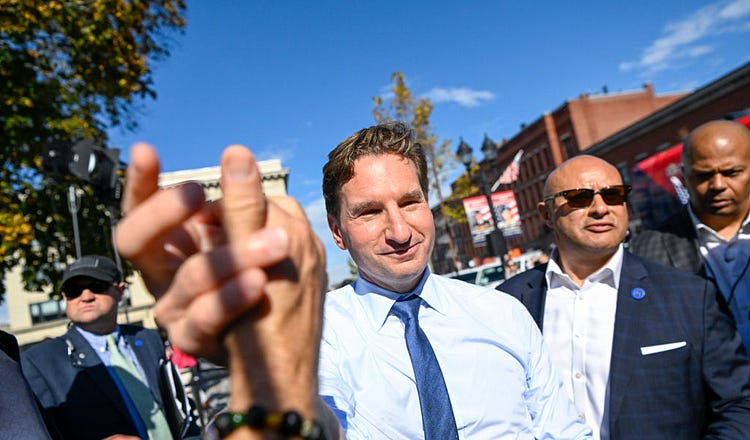Weekend Listening: Dean Phillips on His Long-Shot White House Bid

Dean Phillips on the campaign trail in New Hampshire. (Photo by Gaelen Morse/Getty Images)
The Minnesota moderate on why he’s running, Democratic corruption, Biden’s decline, January 6, and more.
341
The first Democratic primary in New Hampshire is less than two weeks away and the mood among Democrats is grim. Joe Biden is behind Trump in almost every national poll. And the feeling among Democrats is well, there’s just nothing we can do about it.
Enter Dean Phillips: the lone Democratic soldier trying to make a last-ditch effort to stop the 2020 rema…
Continue Reading The Free Press
To support our journalism, and unlock all of our investigative stories and provocative commentary about the world as it actually is, subscribe below.
$8.33/month
Billed as $100 yearly
$10/month
Billed as $10 monthly
Already have an account?
Sign In


